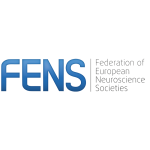On-site courses
On-site courses are taught by top-notch scientists and instructors coming from all over the world. The ratio faculty per student in the practical sessions is usually higher than one, which ensures a high level of tutoring.
Courses are usually two or three weeks long. The intense programme allows covering a variety of topics and advanced techniques. It comprises keynote lectures, practical talks and exercises, experiments, demonstrations and experiments done within the frame of group and group projects.
Neurokits
NeuroKits are hybrid courses. They are 1 to 3 weeks long and combine online lectures about fundamentals and advanced neuroscience topics, with hands-on and physical experiments. Scientists from all over the world can participate because the course material is sent by post in a box.
Call for applications
The calls for application for on-site courses usually open 7 months before the start of each course, and remain open for 6 weeks. Application dates are subjects to change and, in certain cases, deadlines could be extended. Please check the course webpage for updates and subscribe to our newsletter to receive information on the courses.
Online application form
Students can apply to the course of their choice through an online form. To access the online form, click on the “Apply” button which appears on the course dedicated webpage once the application call is open.
Applications through email are not receivable.
The application form will ask for:
(Marked (*) items are mandatory)
- Personal information (contact details, etc.)*
- CV*
- List of publications in peer-reviewed journals & first author presentations
- Motivation for attending this course*
- Research interests and background relevant to the course*
- Stipend requested, if applicable
- Two referees*
Recommendations
The two referees provided in the application form will receive an e-mail asking them to support the application through a scoring form. Recommendation letters sent by email are not valid.
Before indicating your references in the application form, please make sure that the referees:
- are aware of your request for recommendation
- received an email from the Cajal administration requesting that they fill in the recommendation form (24h after the application form was submitted)
- fill in the recommendation form that will be sent to them within the given timeline (i.e. two days after the set application deadline).
In case your referees report that they have not received the email with the recommendation form, even after checking their spam folder, please inform the Cajal Central Administration by email at info@cajal-training.org, mentioning the name of the course you applied to, your name and email address used to apply and the name and email address of the referee.
Technical issues
If you experience technical problems with the application form, please:
- Clear your cache
- Try using a different browser
- Try using a different computer
- Try using a different Internet access point
- Try deactivating your firewall
If you still experience problems, please contact info@cajal-training.org describing the issue and what you have tried to solve it so far.
The CAJAL courses are usually attended by 20-25 participants depending on each specific course scientific, technical as well as practical considerations.
Profile of participants
The training courses are meant for anyone who wants to have an in-depth theoretical and experimental knowledge about a new research area or new application and has a need for comprehensive, high-level and condensed instructions to get started.
The majority of the participants is expected to be at the advanced PhD or postdoctoral level, however we accept applications at any level of scientific career. Early- or late-stage career individuals, as well as advanced laboratory technicians may also have sufficient interest and expertise to attend the courses.
Selection of participants
Following the call for applications, the participants for each course are selected by the course directors based on objective criteria including relevant scientific experience, previous knowledge of the field and references. Criteria for selection also comprises a motivational statement from each student about their envisioned scientific future and how attending the course may contribute to this.
Results announcement
Emails informing the selection results are usually sent to applicants four to six weeks after the application deadline – whether they were selected to attend or not. Admitted students usually have a week to accept the offer. In case a selected applicant can no longer attend, the administration then contacts the next person in the waiting list.
Stipends selection results are usually announced within the acceptance emails.
The Cajal Stipends
The CAJAL programme offers four stipends per on-site course. They correspond to waived registration fees. Travel expenses are not included in stipends. To apply for a stipend, select the option “yes” under the stipend section of the course online application form. You will be asked to evaluate how much support you need, to justify why you need support and to describe the efforts you have made so far to obtain other financial support.
In order to identify candidates in real need of a stipend, any applicant is encouraged to first request funds from their lab, institution or government.
If you have already benefited from a Cajal stipend in the past, you are no longer eligible to receive this type of funding, however you may benefit from another type of grant.
Cajal stipends are usually targeted at students from middle/low-income countries, from countries located far away from the venue or from less well-off labs, who could not afford to attend the course without help. The selection of stipend recipients is always reviewed by either the Cajal Administration or a member of the Cajal Leadership. Cajal pays a particular attention to scientists from underrepresent groups, as is detailed in our Diversity & Inclusion Policy
Other grants
Other types of funding (i.e. partial stipends, travel grants, etc.) may be available for specific courses. These are provided by Cajal partners (apart from FENS and IBRO) or course sponsors. Their availability may be announced during the application process, after the participants’ selection or during the registration process.
Boehringer Ingelheim Fonds (BIF) Travel Grants
In the scope of a Cajal-BIF partnership, for each on-site course, two students are selected by the course directors to apply for a BIF travel grant. Once the two participants are pre-selected, the Cajal Administration will assist them to submit an application to the BIF. The applicants will be informed by the Cajal administration of the outcome of their application to BIF within four weeks (i.e. before they have to pay the registration fee).
Childcare grants
The Cajal Programme offers grants to support childcare-related expenses of faculty members. These grants are intended to assist faculty with combining family obligations and the requirements derived from the role performed during the Cajal courses. Faculty can apply for a grant through the relevant Venue Administration.
Registration Fee
For on-site courses, the registration fee varies between €2.950 and €3.950 depending on the type (dry or wet lab) or length (two or three weeks) of the course. The fees include tuition fee, accommodation, meals and social activities organised by the Venue Administration during the course; to the exception of extra drinks, which are at the participants’ charge. Travel costs are not included.
For the NeuroKit courses, registration fee will vary depending on the content of the kit. For more information, please visit the relevant course page.
Payment methods
No registration fee is due until you have been officially accepted into a course.
Payment in full is usually due four weeks after the announcement of the selection results, and no later than four weeks before the course starting date. In case of non-compliance with this timeframe, the participant will not be granted access to the course.
Participants can pay via credit card (through Paypal) or by bank transfer (with an additional €25 bank transfer fee).
To request an invoice for payment, please write to info@cajal-training, mentioning the course title and the name and address (or any other information needing to be indicated on the invoice) to which the invoice should be addressed.
If you experience difficulties with a payment or have any other enquiry, contact the Cajal Administration at info@cajal-training.
Passport and Visa
Please check with your country’s administration whether you need a VISA to attend the course. The Cajal administration can provide an invitation letter. The on-site Cajal courses in most cases fit the requirements of a short-term tourist visa. If you have any question or doubt about your visa application, please contact your embassy before applying. You are also welcome to contact the Cajal administration for more general questions (info@cajal-training.org).
Cancellation
- In case of cancellation of the course announced prior to the course starting date, registration fees will be refunded in full to the participants.
- In case of cancellation of the course after the course starting date, a fee refund might not be possible. The Cajal Administration will work on a case by case basis for refunds.
- Refunds are not granted in case of no-show or cancellation of attendance less than four weeks prior to the course; expect in the following events:
- Sickness with a certificate, and in the event that reimbursement by insurance is not possible.
- Inability to travel with official written proof, and in the event that reimbursement by insurance is not possible.
- Refusal by the authorities to provide the participant with a VISA to enter the country where the course is held. A full refund will only be granted if the participant followed the accurate and timely procedure of VISA request.
- In case of cancellation of attendance announced four weeks prior to the course, the Cajal Administration will work on a case-by-case basis for refunds.
- In case there is a risk that you might cancel your attendance to a course, please inform the Cajal Administration as soon as possible at info@cajal-training.
To cancel your attendance to a course, please write to info@cajal-training, mentioning the course title, your name and the reason for cancelling.
Insurance
Please make sure that you are protected by travel and health insurance for the period of your stay, covering standard civil liability. If requested, you should be able to provide a proof that you are covered during your stay to the Cajal venue administration. The programme does not cover medical costs that may arise during your stay.
Accommodation
Courses are held either at the Bordeaux School of Neuroscience in Bordeaux (France) or at the Champalimaud Centre for the Unknown in Lisbon (Portugal). Faculty and students’ accommodation is organised by the Venue Administration. Hotels are usually located either within walking distance from the venue or near the city centre, in which case daily shuttles are organised by the Venue Adminsitration.
Students are usually housed in twin rooms with ample space to keep social distances.
Venue administrations ask for dietary requirements in the registration process. In case you have dietary requirements that have not yet been communicated to the Venue Administration, please inform the relevant staff as soon as possible, preferably prior to your arrival.
For more information on housing and food, please visit the course venues page.
Family members and guests
Course faculty who wish to bring family members to the course should check with the Cajal Central Administration as far in advance as possible in order to accommodate all reasonable requests for families of faculty (speakers & instructors).
Participation in a Cajal course is very intense, therefore, participants are advised and encouraged not to bring family members with them to the course.
Certificate of attendance
At the end of the course, participants receive a digital certificate attesting that they followed the entire Cajal course. This is usually sent by the Venue Adminsitration.
European Credit Transfer and Accumulation System (ECTS)
The Cajal Programme evaluates one Cajal course as equivalent to 2.5 ECTS.
The Cajal Programme is not an academic institution and therefore it cannot grant ECTS to its participants. The Programme is however able to provide a letter destined to the administration of the participant’s institution, testifying of the Cajal courses’ credit equivalence. The decision whether to validate the credits is left entirely to the discretion of the administration of the institution.
Satisfaction survey
At the end of the course, participants receive a link to a short online satisfaction survey where they can evaluate the course and the Cajal Programme. This is usually sent by the Cajal Central Administration. Participating in the survey is very helpful and crucial to the Cajal courses’ evolution and improvement.
Cajal Alumni Network
Participating in a Cajal course is a unique experience which doesn’t finish with the end of the course. The Cajal Programme is happy to keep in touch with alumni and to provide a space for networking, exchange of ideas or help with trying out techniques once back in your lab.
Cajal also plans alumni reunions at major neuroscience meetings.
To be part of the Cajal Alumni Network, subscribe to our newsletter at the bottom of this page and follow us on social media.
The Cajal Programme is committed to equality, diversity and inclusion in the recruitment, selection and invitation of faculty and participants. We aim to ensure all individuals have an equal opportunity to benefit from our activities regardless of race, disability, gender, sexual orientation, religion, age or background.
The Cajal Programme strives to include qualified individuals from underrepresented groups in science.
Middle-and-low income countries
The Cajal Programme is fully committed to encourage attendance and involvement by scientists and participants from all over the world and especially from countries with low or middle income (according to the World Bank country classification).
Inclusion and diversity at the level of the faculty and participants is achieved by the financial support of our funding partners: the International Brain Research Organization (IBRO), the Federation of European Neuroscience Societies (FENS) and The Gatsby Charitable Foundation; and of additional funders and sponsors.
Travelling, housing and food costs for all invited faculty are covered during the whole duration of the course. In addition, every course benefits from a minimum of four Cajal stipends, which cover the full registration fee (including housing, food costs etc.). Two travel grants are also provided by the Boehringer Ingelheim Fonds (BIF) for each course. Finally, Cajal local partners and sponsors often support specific courses with studentships.
Women in science
Within its mission of inclusion, the Cajal Programme particularly strives to increase the percentage of female faculty members. Through the whole course development process, Cajal pays great attention at having a gender balance in invited course directors, keynote speakers and instructors.
Individuals with disabilities
Scientists with disabilities are welcome and encouraged to participate in Cajal courses. For more information on on-site facilities or to enquire about programme adaptations, please contact the Cajal Central administration at info@cajal-training.org.






